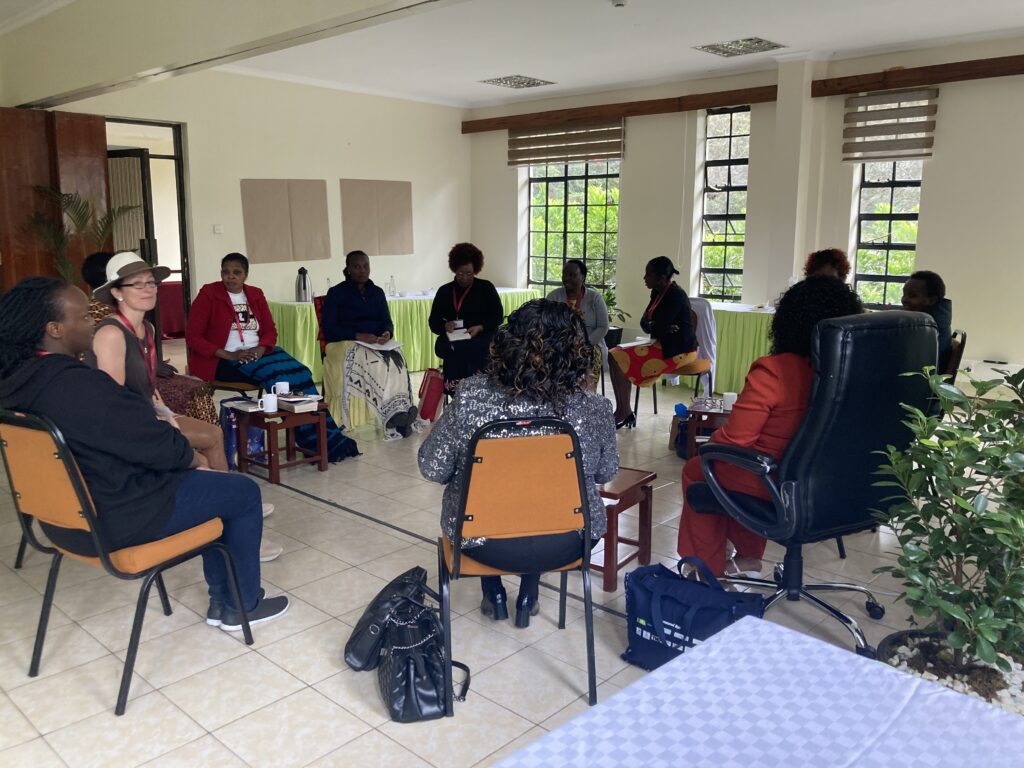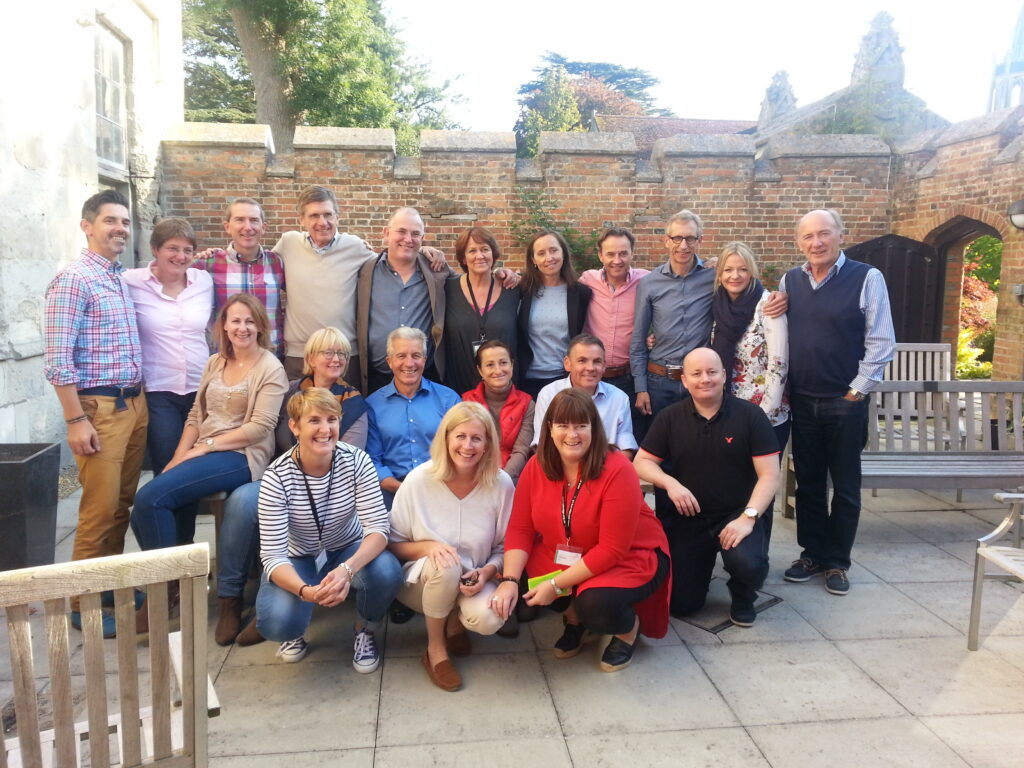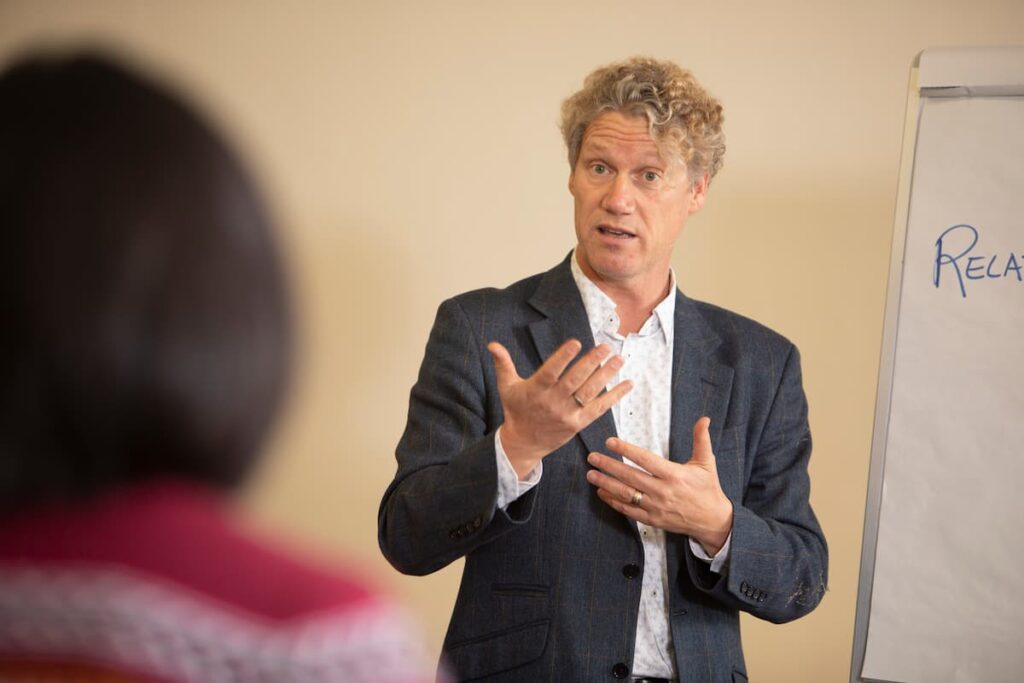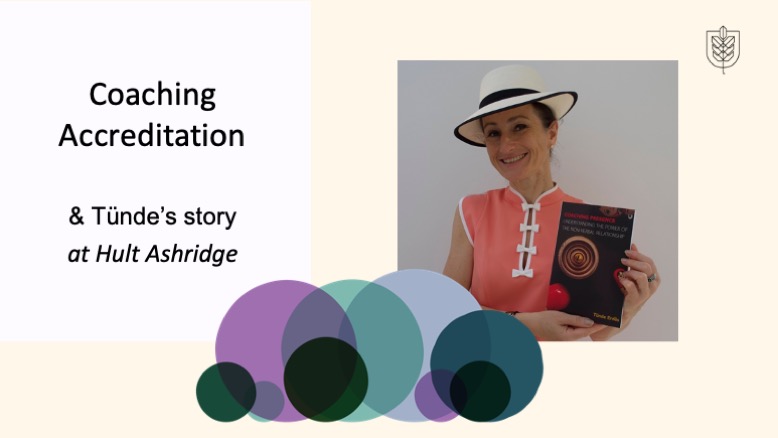The accreditation equation: Setting out the facts and a participant’s story
Many people considering a coaching qualification naturally have questions around accreditation. We recently took the opportunity to talk with two-time Ashridge coaching alumna, Tünde Erdös. As well as her Master’s in Coaching, Tünde holds a PhD in Business and Organization Management and our Postgraduate Diploma in Organizational Supervision. She has authored scientific and non-scientific work on coaching and received the ICF Impact Through Coaching Award in 2023 for the social impact of her engagements in coaching.
Tünde is joined by Erik de Haan, Director of the Hult Ashridge Center for Coaching.
Hult: Hi Erik, could you firstly set the scene for us please in terms of what it means for us to be EMCC-accredited?
Erik: Certainly. Hult Ashridge coaching programs are EMCC-accredited. This is true for our individual coaching program, our team coaching program, and our supervisor qualification program as well. This means we submit our programs to their quality control, fulfill their conditions, and follow their recommendations, so that we “pass” their program accreditation and we can call ourselves EMCC programme accredited (European Quality Award: EQA, ETQA, ESQA). Every few years, they come back and re-accredit us. We pay for this process and they employ independent experts to do the scrutiny and quality control.
What many people outside Ashridge don’t know is that individuals who pass Ashridge accreditation automatically gain EMCC individual accreditation, the European Individual Award (EIA) at Senior Practitioner level. This is true for both team coaches and individual coaches.
What many people outside Ashridge don’t know is that individuals who pass Ashridge accreditation automatically gain EMCC individual accreditation, the European Individual Award (EIA) at Senior Practitioner level.
Erik de Haan
This means that the EMCC has rigorously checked our standards and finds them well-chosen and well-implemented, so that they are convinced that our accreditation is a coaching standard at least equal to their own individual standard at “Senior Practitioner” level. They trust our standards and processes to such a degree that they will award our successful candidate with their individual accreditation award automatically.
Hult: Very helpful, thank you Erik. We’ll expand on this a bit more later.
Now, to you, Tünde: You graduated from your master’s in executive coaching with us back in 2016. And we happily welcomed you back last year for your postgraduate diploma in supervision.
Tünde: Yes! I graduated from my master’s in 2016, which meant I attained Ashridge accreditation and EMCC accreditation. After that, I added my ICF accreditation, and in 2017 I started my PhD in Business & Organization Management in 2017. Like you say, I recently came back for my supervision qualification and I’m now a full-time executive coach and supervisor alongside my social impact coaching project that I run in Kenya.


Hult: You’re doing many wonderful things in the coaching world. First, please take us back to your original decision to pursue coaching and the reasons behind that?
Tünde: It was essentially boredom in my professional life that was the catalyst for my coaching journey. I was in a successful career, but I just knew that something was missing. I was delivering communications trainings. And what I was missing was the real action part. I wasn’t actually seeing people implement their learning. With coaching, I realised I could be impactful and make a real difference to people’s lives.
I’m training women in Nairobi to coach now, which I’m funding through a documentary that I produced about coaching. Apart from that, I’m a full-time executive & team coach, consulting within organizations, both in-person and remotely.
Hult: And how was your time at Ashridge?
Tünde: You know, I had a shock when i did not pass first time. Because I was expecting this to be an easy journey, and I had this self-image that I’m a quick learner. But I was wrong! And I really, highly appreciate that I was guided so well to learn so well.
At Hult Ashridge, it’s not about ticking boxes and getting straight out there. It brought me back to the realities of what coaching is really about: deep learning. And today, I’m so grateful for this because it’s part of why my clients like working with me. I’ve never had to market my consultancy because I get referrals. And I think part of the success is owing to the solid learning and deep reflection and self-reflection. And there’s the co-learning piece too, which I’d never realised the importance of before. There’s a real value in learning with others and through others. I’ve never had a learning environment like at Hult Ashridge, before or since.
That’s why I came back for my postgraduate diploma in supervision, because of the quality of the learning environment and because it’s so rigorous and I think this is what helps us grow to serve our clients best. I’ve seen the value that it’s creating for my career and how happy my clients are. I can deal with their complexities with the skills that I have—something I don’t think I would have gained elsewhere. That’s why I can be who I am today.


Hult: You graduated automatically with EMCC accreditation, as our master’s graduates do. And what made you decide to apply for the ICF accreditation on top?
Tünde: Really just because I love learning and I was curious. I thought it would be as rigorous as the Ashridge accreditation. I thought it would be a new opportunity to reflect more and to do some more deep learning. Because I’d really enjoyed it; and I could see my growth and the professional it had turned me into.
Hult: And how was it?
Tünde: Well. I applied. And I passed. It was very inexpensive. And very quick. But it was more of a demonstration of the learning that I already had acquired at Hult Ashridge. More of a tickbox exercise.
With ICF, you do some training and you select a coach mentor who guides you through the accreditation process. You have markers so you know exactly which competencies will be marked and your coach mentor is going to walk you through those markers and you demonstrate them. So, ICF accreditation is really an invitation to demonstrate your skills. It’s not a learning platform. It’s not that way at Ashridge, where you start, you unlearn, learn, and relearn. You become. And finally, you leave with an accreditation—and the whole journey of becoming is part of your learning.
And with ICF there’s no reflective learning. which is a very big difference for me. So, looking back, yes, I ticked the boxes and I demonstrated my skills, which I had acquired with Ashridge and it was a very straightforward process.
Erik: There are many differences between ICF and EMCC accreditations. ICF checks if coaches use ICF competencies and work within ICF defined ethics standards, by marking a piece of coaching and by means of multiple-choice exams. EMCC is much more like a professional dialogue which compares you as a coach to your own standards.
[Hult Ashridge is] so rigorous and I think this is what helps us grow to serve our clients best. I’ve seen the value that it’s creating for my career and how happy my clients are. I can deal with their complexities with the skills that I have—something I don’t think I would have gained elsewhere.
Tünde Erdös
Hult: Erik, can you talk a bit about us being ICF-approved and what that means?
Erik: Our teaching hours count fully towards the teaching hours that someone needs to achieve ICF credentialing, which is their word for accreditation. So, after completing our programs, the route towards individual credentialing is exactly the same coming away from Ashridge as it would be coming away from any ICF-accredited provider. We just don’t choose to be an ICF provider because we do not want to be constrained by their limited ethics and competencies, and because we do not believe it is worth our efforts.


Hult: So, Tünde, did you apply online? What was the process like?
Tünde: Yes, I applied online. There’s a lot of material, files, etc. that you need to submit and then on top of that you need what they call a coach mentor. This is really just someone who is tasked with walking you through the application process to make sure you can adhere to their core competencies, which you must be able to do before you apply.
Hult: Where did you get the mentor from?
Tünde: There’s a list of coach mentors on their website and I chose from that list. So, you apply, you pay a fee, which is predominantly for the coach mentor. I think I paid less than €1500 in 2017. You get eight to 10 sessions of mentoring and then you go through the motions and that’s it. I was done very quickly, like lightning!
Hult: What sort of timeframe is that?
Tünde: It’s the mentoring that needs to take place over a certain period of time. I think we’d completed it within the expected timeframe of six months. It was all very easy and straightforward.
Hult: What are your tips for anyone considering doing the same?
Tünde: If you’ve done the learning, then the application process and passing are easy.
When you’ve been through the Ashridge process, which is an integrated learning process, you’ll have all those competencies that ICF are looking for—and more. Ashridge isn’t just about accreditation. It’s about really growing into a professional coach. And then at the end, you’re holding a certificate! But the certificate is just a by-product of the journey.
If you haven’t done the learning and you’re just applying to get a certificate, then it’s going to be much more difficult.
ICF accreditation is really an invitation to demonstrate your skills. It’s not a learning platform. It’s not that way at Hult Ashridge, where you start, you unlearn, learn, and relearn. You become. And finally, you leave with an accreditation—and the whole journey of becoming is part of your learning.
Tünde Erdös
Hult: And how is it different at Hult Ashridge from the usual process with schools who have ICF accreditation?
Erik: There is no difference in gaining the ICF accreditation, because no school can help with that directly. They can only “train” ICF competencies and ICF ethics, which is something we have chosen not to do. Because we have our own different coaching philosophy. We are not compatible enough and don’t want to become an extension of the ICF.
Hult: So, what would you say are the benefits of adding ICF accreditation if you’re already EMCC-accredited?
Tünde: Experience shows that for me it’s beneficial because some organizations are more aware of ICF than EMCC. So having both means you have all angles covered. In terms of reflection and learning, I personally don’t think it’s an add-on to have it. However, in terms of expectations from organizational clients who are more familiar with ICF than EMCC: in that sense, it might be an add-on.
Hult: What’s your advice to anyone considering one or the other?
Tünde : Personally, I would advise anybody to do both anyways. Knowing them both, being a member of both, and understanding what each of them means, I can explain this to clients and talk about this. I feel safe because there’s no confusion and I understand the field a lot better, which I feel responsible to do. It’s an ethical thing too.
Hult: Thank you Tünde. And lastly, how can people learn more about and purchase your coaching documentary?
Tünde: You can visit the website and learn about my inspiration, vision, and who I am partnering with locally. It’s in collaboration with the First Lady in Kenya, who is a coach herself.
Tünde holds a PhD in Business and Organization Management and specializes in successfully dealing with complexity in New Work in organizations. She has authored scientific and non-scientific work on coaching, most recently about the light and shadow of AI in coaching in the age of democratization of coaching in Association for Coaching’s international flagship magazine.
Tünde received the ICF Impact through Coaching Award 2023 for the social impact of her engagements in coaching.
www.tuendeerdoes.com/publications
Our relational coaching philosophy runs through everything we do here at Hult Ashridge. With EMCC-accredited coaching qualifications, we’re fully recognized at senior practitioner level for all three disciplines: executive coaching, team coaching, and supervision. If you’re looking to overhaul your coaching techniques, launch your own practice or taking the next steps toward becoming the coach your clients need you to be, then take a look here at our coaching qualifications portfolio and upcoming intake dates.


